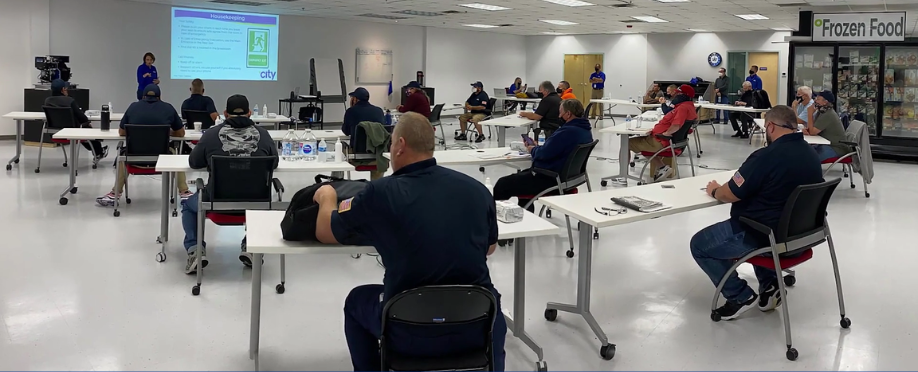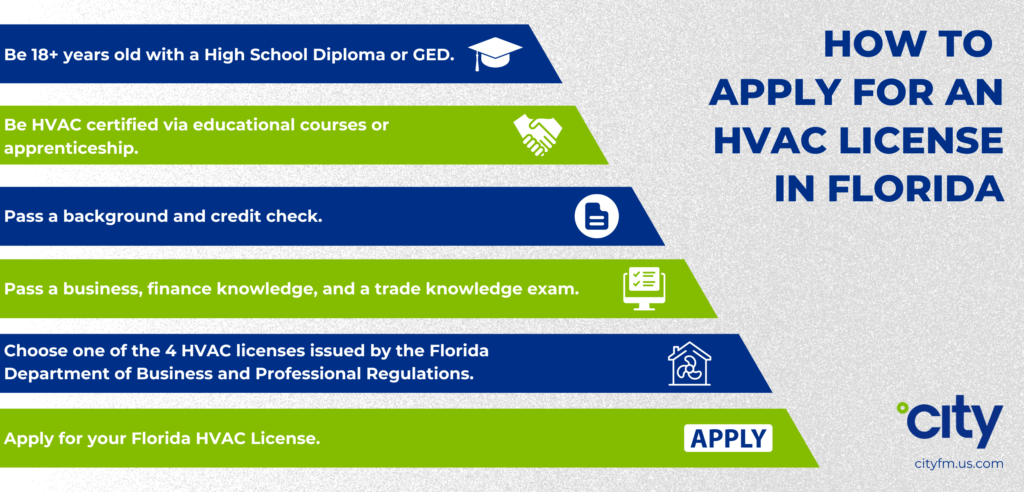
The New Year has arrived, and with that comes those with resolutions of developing their careers and education over the next 12 months. If you’re a technician looking to break into or develop your career in the heating, ventilation, and air conditioning (HVAC) field, trying to decide which path is the best for you can be complicated.
In this Tech Talk, we break down some of the differences between two paths: obtaining an HVAC certification versus license.
What is HVAC Certification?
HVAC Certification is the first step that HVAC technicians take before they can begin officially working in the field and they are often restricted to the state that technicians test in. The certification is earned after passing an accredited certification exam, following the completion of an education program typically offered at community colleges or trade schools. Apprenticeships or on-the-job training are also crucial when it comes to gaining the real-life experience and knowledge required for passing the exam. While holding an HVAC certification doesn’t allow technicians to start their own businesses, they are fully equipped to begin working under a licensed HVAC technician.
It is important to note that HVAC and Refrigeration HVAC (RHVAC) certifications are two different things. To be an RHVAC technician, one must receive their Section 608 Technician Certification. Without that certification, technicians are unable to maintain, service, repair, or dispose of equipment that could release refrigerants into the atmosphere.
What is HVAC Licensure?
Depending on the level of work and experience in the HVAC field a technician is working towards affects the benefits of getting a certification versus a license. If you are interested in becoming a leader for an HVAC organization, starting your own business, or are looking for employment in some Northern states such as Massachusetts, becoming licensed may be the best bet. License requirements vary from state to state, but for the state of Florida, there are four different licensing options for technicians, each of which certifies different levels of performance a technician can perform.
Below is a breakdown of a few of the steps needed for obtaining an HVAC license:
HVAC licenses open up a wide range of career and compensation options that are usually limited by certifications. Without a license, private companies will most likely not hire you for contract work. Having a license also usually means more pay – think of HVAC licensing like an advanced degree! With a license, technicians are seen as more competitive in the market and can qualify for advancement at a quicker rate. While the process of getting a license can take time to achieve and be costly, the benefits of being licensed make the process worth it for many technicians.
At City, we are proud to support R/HVAC technicians looking to obtain their licenses, in addition to operate and hire heavily in areas that require them.
“We are proud of our technicians who take the initiative to develop further in their careers,” says George Campbell, Head of Technical Services at City US. “That’s why we have self-taught curriculum through our City University and programs developed over the last seven years designed to help techs at any level advance their skills. Techs who want to get started in the HVAC field can join our team and receive continual guidance to receive their certifications, and later, licenses if they choose.”
We are proud of our technicians who take the initiative to develop further in their careers.George Campbell, Director of Technical Services at City
Supported by City through hands-on training on the very equipment in grocery and retail stores and City University, an online eLearning platform that offers training courses for a variety of technical skills, technicians are given the ability to grow within the HVAC field and enjoy sustainable careers.


 2016: City US is established in North America, in partnership with Southeastern Grocers (SEG), servicing over 750 supermarkets across 7 southern states.
2016: City US is established in North America, in partnership with Southeastern Grocers (SEG), servicing over 750 supermarkets across 7 southern states. 1985: Willie and Susan Haughey establish City Refrigeration Holdings (UK) Ltd in Glasgow, UK.
1985: Willie and Susan Haughey establish City Refrigeration Holdings (UK) Ltd in Glasgow, UK. 2009: City Australia launches in Melbourne, in partnership with Coles, servicing over 700 supermarkets across the country.
2009: City Australia launches in Melbourne, in partnership with Coles, servicing over 700 supermarkets across the country. 2015: City Asia launches in Kuala Lumpur, Malaysia, in partnership with Dairy Farm, servicing over 205 supermarkets across the region.
2015: City Asia launches in Kuala Lumpur, Malaysia, in partnership with Dairy Farm, servicing over 205 supermarkets across the region.